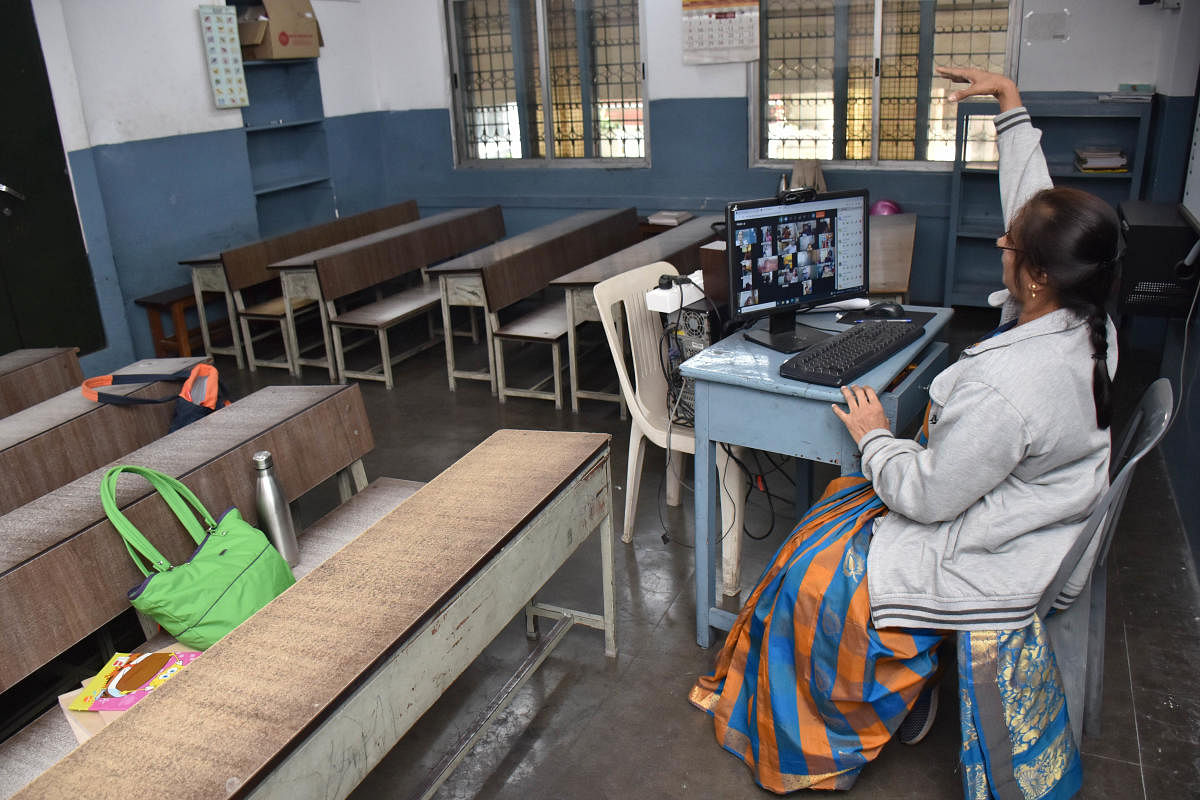
Learning loss is not new. After summer vacations or prolonged, unforseen holidays, evidence suggests that students forget what they have learned without revision. Generally, a short recap of earlier learning is the current practice at the beginning of a new semester. The pandemic is an extreme case of learning loss. There is a stark loss at both the school and the university level despite online education.
The pandemic has altered the fundamental way of learning. Learning is now happening through more informal, self-taught methods. This does not mean that students who physically attending college have excelled in their subjects. However, learning was more enjoyable because of interaction with peers and teachers.
My conversations with university faculty have revealed that students generally lack interest and do not engage with teachers in the online mode of teaching. Often, teachers have complained that they feel like they have encountered a wall. Some students may answer a teacher's query out of courtesy, but the rest remain unengaged. As a result, teachers' enthusiasm is affected.
Such online learning might work for skill-based, computational programmes. However, liberal arts programmes are structured beyond career opportunities. The education process attempts to shape a student's personality.
For instance, communication programmes prepare individuals to face the world by encouraging critical thinking. After the pandemic, the very philosophy of the discipline is affected. The college environment, peers, library, and academic community play a crucial role in nourishing this learning experience.
It is not the technological environment or gadgets that bring learning to the doorstep. These are mere mediums. Despite favourable learning conditions online, there has been little or no progress in learning from home, based on research conducted in the Netherlands. If this is the situation in a developed country, what might be the situation in underdeveloped or developing nations?
Digital divide
During the first wave of lockdown, in 2020, a study by the Azim Premji foundation indicated a worrisome digital divide. In five states, more than 60% of school students could not access online education opportunities. People with disabilities were almost ignored in the online learning environments. Even in urban places like Bengaluru, only 26% of students had computers.
The study's outcome emphasises understanding education with diverse perspectives. One can't assume that every student would own a smartphone or a laptop. Distributing laptops as freebies can not ensure better learning as online learning is self-driven.
Unless there is a community-driven motivation strategy, it is hard to gauge the effectiveness of online learning. Parents and teachers need to figure out learning curves of children. Such strategies might be tricky among underprivileged sections as most parents may be blue-collar workers and less aware of using technology. In such situations, local youth could come forward to teach and help minimise learning loss.
If there is a good practice by some government teachers, the strategy should be shared so others can replicate it. Such strategies could be adapted according to diverse students' contexts. Any volunteering groups that come forward should also be given space to operate. More importantly, it is crucial to educate students about screen usage for learning rather than entertainment.
(The writer is a media teacher based in Bengaluru)